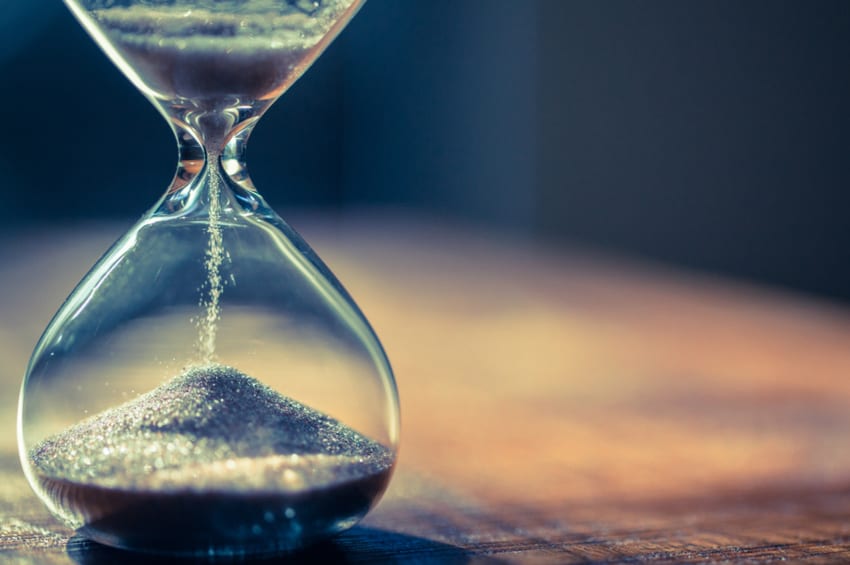
You can’t wait to get into ketosis and reap the benefits, but how long will it take? In our fast-paced world, we often want fast results! When you ditch the carbs and ramp up those delicious healthy fats, how long does it take to get into ketosis?
When Will You Achieve Ketosis?
The time it takes to achieve ketosis varies depending on the person. [1] [2]
If you’ve lowered your carbs to around 20-50 grams daily, it generally takes 2-4 days. For some people, it might take a week or longer. [3]
Remember, you might experience some symptoms as you transition from burning carbs to burning fat. Known as the keto flu, these symptoms might include fatigue, nausea, and increased thirst. Check out our article on ways to avoid or diminish the keto flu!
Why Does it Take Longer for Some People?
Those who are healthier and more metabolically adapted might achieve ketosis faster than those who aren’t.
If you usually eat a high-carb diet, it might take you longer to reach ketosis than those who generally consume a low-to-moderate carbohydrate diet. Your body has to deplete your glycogen stores before entering ketosis. When your body doesn’t need to use glucose (sugar) for energy, your body stores glycogen (connected glucose molecules) in your liver and muscles.
Some people are slower to begin producing ketones due to various factors, such as:
- Metabolism
- Age
- Eating too many carbs
- Not eating enough fat
- Eating too much protein (gluconeogenesis)
- Lack of exercise
- Lack of sleep
- Stress
Some people can begin producing ketones while still eating more carbs, as much as 70-90 grams daily, while others need to eat fewer than 25-30 grams. Generally speaking, the ketogenic diet drops carb intake to around 50 grams per day. [4]
You might need to drop your carb count. You might also be consuming too much protein, which can encourage your body to use gluconeogenesis. Gluconeogenesis is a process where your body converts protein into sugar. Too much sugar inhibits ketone production. [5]
Exercise can accelerate your entry into ketosis by helping your body empty carb stores faster. [6] [7]
Try experimenting and testing your ketones to see what’s best for you.
How Do You Know You’re in Ketosis?
Aside from how you feel and your diet, the best way to know if you’re in ketosis is to test your ketone levels. You can test your ketones through your urine, blood, or breath. Read our article for more info on testing ketones.
Summary
It should take around 2-4 days for you to enter ketosis, but it might take a week or longer for some.
The best way to determine if you’re in ketosis is to measure your ketone levels using a breath, urine, or blood measuring tool.
Check out our top tips for getting into ketosis!
How Long Does It Take You To Get Into Ketosis?
Is it easy or difficult for you to start producing ketones? Do you test your ketones? What’s your preferred testing method? Share your top tips with other keto dieters!
References
Scott, J. M., & Deuster, P. A. (2017). Ketones and human performance. J Spec Oper Med, 17(2), 112-116.
Harvey, C. J. C., Schofield, G. M., Williden, M., & McQuillan, J. A. (2018). The effect of medium chain triglycerides on time to nutritional ketosis and symptoms of keto-induction in healthy adults: A randomized controlled clinical trial. J Nutr Metab, DOI: 10.1155/2018/2630565
Harvey, C. J. C., Schofield, G. M., & Williden, M. (2018). The use of nutritional supplements to induce ketosis and reduce symptoms associated with keto-induction: A narrative review. Peer J, DOI: 10.7717/peerj.4488
Adam-Perrot, A., Clifton, P., & Brouns, F. (2006). Low-carbohydrate diets: Nutritional and physiological aspects. Obesity Reviews, 7(1), 49-58. DOI: 10.1111/j.1467-789X.2006.00222.x
Veldhorst, M. A. B., Westerterp-Plantenga, M. S., & Westerterp, K. R. (2009). Gluconeogenesis and energy expenditure after a high-protein, carbohydrate-free diet. American Journal of Clinical Nutrition, 90(3), 519-526. DOI: 10.3945/ajcn.2009.27834
Koeslag, J. H., Levinrad, L. I., Lochner, J. D., & Sive, A. A. (1985). Post-exercise ketosis in post-prandial exercise: effect of glucose and alanine ingestion in humans. J Physiol, 358, 395-403. DOI: 10.1113/jphysiol.1985.sp015557
Borer, K. T., Wuorinen, E. C., Lukos, J. R., Denver, J. W., Porges, S. W., & Burant, C. F. (2009). Two bouts of exercise before meals, but not after meals, lower fasting blood glucose. Med Sci Sports Exerc, 41(8), 1606-1614. DOI: 10.1249/MSS.0b013e31819dfe14









